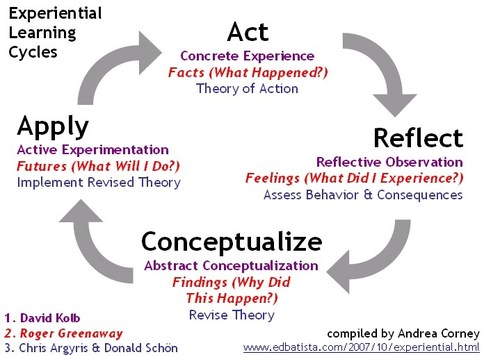Journals & Reflections
Journals
Journals are at the heart of the reflective process. While performing your duties and fulfilling your commitments for your activities and projects, you are required to write a journal entry once a month for each on-going activity that you are taking part in. (If you meet much more regularly, like varsity sports that meet daily, then it follows that you should journal more often than once a month. Every 1.5 to 2 weeks is a good starting point.)
Here are some tips on how to get yourself in the groove to write:
These are just simple ways to help develop the practice of journal writing. Journals provide you with opportunities to reflect on your experiences and record your insights and learning in a timely and organized manner. As an added benefit, you will have a better resource (than just your memories) to draw from when you need to write your final reflections at the end of each activity or project.
Here are some tips on how to get yourself in the groove to write:
- Stagger your journaling
- Use your journals as Checkpoints
These are just simple ways to help develop the practice of journal writing. Journals provide you with opportunities to reflect on your experiences and record your insights and learning in a timely and organized manner. As an added benefit, you will have a better resource (than just your memories) to draw from when you need to write your final reflections at the end of each activity or project.
Reflection
Reflection is a major part of CAS. You are reflecting each time you write a meaningful journal entry.
At the end of every activity, you go through the self-evaluation process to produce your Final Reflection. This Final Reflection should be posted on your blog within two weeks of an activity's completion. (Your Activity Supervisor will need to read this before your evaluation can be written.)
Reflection needs to be developed. It should not be assumed that it comes naturally. Just as the kind of reflection that a critic applies to a work of art or literature is something that develops with time and experience, so, too, the kind of reflection appropriate in CAS is something that requires guidance and practice.
Use the following prompts to help you get started with your Final Reflections.
At the end of every activity, you go through the self-evaluation process to produce your Final Reflection. This Final Reflection should be posted on your blog within two weeks of an activity's completion. (Your Activity Supervisor will need to read this before your evaluation can be written.)
Reflection needs to be developed. It should not be assumed that it comes naturally. Just as the kind of reflection that a critic applies to a work of art or literature is something that develops with time and experience, so, too, the kind of reflection appropriate in CAS is something that requires guidance and practice.
Use the following prompts to help you get started with your Final Reflections.
|
Ask yourself...
|
Additional writing prompts:
- Describe the activity. What did you do at each stage? Include dates where they are important.
- What difficulties did you encounter? How did you deal with these difficulties?
- Did you feel, at any stage, that you were failing to achieve what you wanted from this activity? How did you cope with this?
- What did you hope to learn from this activity? about yourself? or about your academic subjects?
- Did anyone help you during this activity? If so, describe the help given.
- How did this activity benefit the people or institutions?
- What would you change if you were to do this activity again? Why?
- What would you like to do next if you could continue this activity?
Reflection makes the difference between active and passive learning in the areas of attitudes and values.
